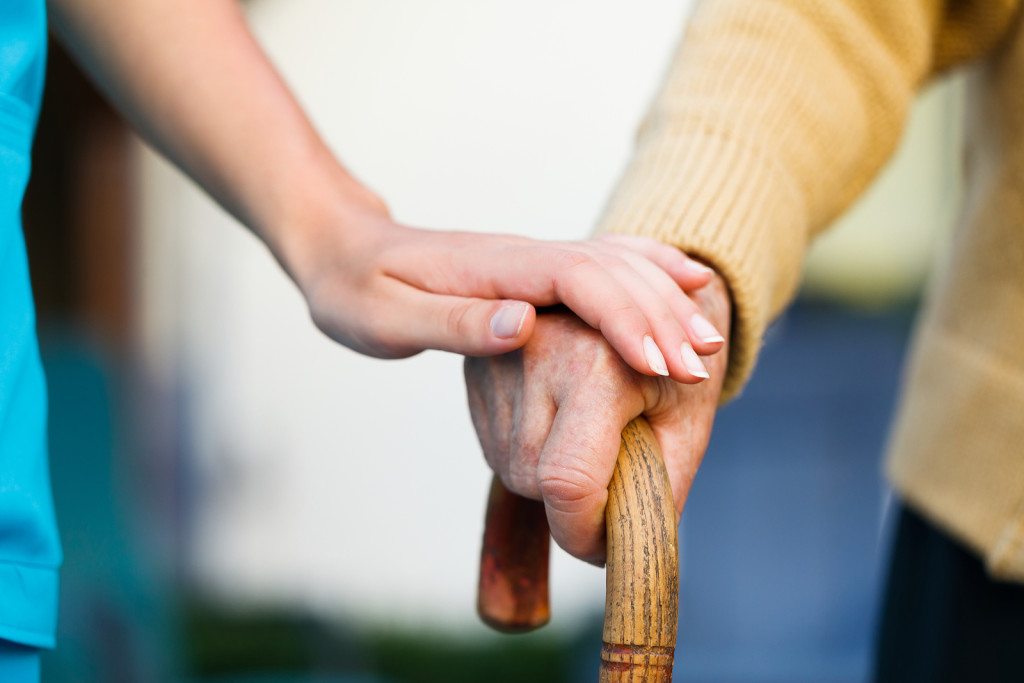Nursing homes do not need to be accredited, and many non-accredited homes provide excellent quality care to their residents. However, there are some major benefits to choosing a facility which has been accredited by the Joint Commission, as nursing home abuse attorney from a PA nursing home law firm, Brent Wieand explains in this article.
Nursing home accreditation is a voluntary process. Nursing homes do not need to be accredited in order to accept residents in the state of Pennsylvania; they only need to be licensed by the Department of Health, Division of Nursing Care Facilities. According to the Division, 713 facilities were operating in Pennsylvania as of June 2012, collectively providing more than 88,000 beds for the state’s elderly population.

Many of these facilities – and indeed, many of the long-term care (LTC) facilities throughout the United States – are not accredited. According to the Joint Commission, an independent non-profit organization which certifies and accredits tens of thousands of U.S. health care organizations, only about 1,000 LTC facilities were accredited as of 2012. Since the CDC reports a grand total of 15,700 nursing homes in the entire United States, that means fewer than one in 15 facilities, or about 6%, are accredited today.
So why go through the effort of seeking out an accredited nursing home, when so many non-accredited options exist? The short answer is that accredited homes are held to more rigorous standards of care and safety for their residents, which ultimately means a higher quality of life.
This is more than just subjective opinion. A recent study conducted by researchers from the NYU College of Nursing found that “senior managers at more than 4,000 facilities across the U.S. identify Joint Commission accreditation as a positive influence on patient safety issues such as staffing, teamwork, training, nonpunitive responses to mistakes, and communication openness,” as summarized by a Joint Commission press release.
Among the 4,008 managers who participated in the study, 3,485 represented non-accredited homes, while the remaining 523 represented facilities accredited by the Joint Commission. Each participant received a questionnaire with a list of statements, to which they were instructed to reply “Strongly Disagree,” “Disagree,” “Neither,” “Agree,” or “Strongly Agree.” Depending on which answer they gave, the nursing home received a certain number of points.
The questionnaire included 38 statements across 11 categories: Teamwork, Staffing, Compliance with Procedures, Training and Skills, Nonpunitive Response to Mistakes, Handoffs, Feedback and Communication About Incidents, Communication Openness, Overall Perceptions of Resident Safety, Management Support for Resident Safety, and Organizational Learning. As the study authors pointed out, “Most – 34 of 38 items – of the difference scores – indicated that accredited nursing homes rated the [statements] more positively than did non-accredited homes.”
Here are just a few examples of the 34 criteria on which accredited homes outperformed non-accredited homes:
“Resident safety is never sacrificed to get more work done.”
Accredited Score – 71
Non-Accredited Score – 66
“Our procedures and systems are good at preventing errors from happening.”
Accredited Score – 69
Non-Accredited Score – 62
“We have enough staff to handle the workload.”
Accredited Score – 60
Non-Accredited Score – 57
“Staff follow standard procedures to care for residents.”
Accredited Score – 68
Non-Accredited Score – 56
“We have all the information we need when residents are transferred from the hospital.”
Accredited Score – 65
Non-Accredited Score – 60
“When staff report something that could harm a resident, someone takes care of it.”
Accredited Score – 80
Non-Accredited Score – 69
“In this nursing home, we discuss ways to keep residents safe from harm.”
Accredited Score – 66
Non-Accredited Score – 64
“In this nursing home, we talk about ways to keep incidents from happening again.”
Accredited Score – 61
Non-Accredited Score – 56
“It is easy for staff to speak up about problems in this nursing home.”
Accredited Score – 59
Non-Accredited Score – 55
“Management often walks around the nursing home to check on resident care.”
Accredited Score – 72
Non-Accredited Score – 63
As the study authors acknowledged, there were also a few areas where non-accredited homes unexpectedly outperformed the accredited homes:
“Staff understand the training they get in these nursing homes.”
Accredited Score – 59
Non-Accredited Score – 68
“Staff are told what they need to know before taking care of a resident for the first time.”
Accredited Score – 65
Non-Accredited Score – 67
“It is easy to make changes to improve resident safety in this nursing home.”
Accredited Score – 64
Non-Accredited Score – 65
Accredited homes and non-accredited homes were tied with 62 points when it came to staff being afraid to report their mistakes – the only tie in the study.

Outside of these four anomalies, the accredited homes showed superior performance across the board. Therefore, if you think it’s time to put your parent in a nursing home, you may want to consider choosing a facility which has been accredited by the Joint Commission, as a nursing home lawyer in Philadelphia, PA can explain. You can also see nursing home ratings by using the government’s Medicare Nursing Home Compare tool.
If you’re concerned about negligence or abuse at a nursing home in Pennsylvania or New Jersey, call Philadelphia personal injury lawyer and nursing home abuse lawyer in Philadelphia, PA Brent Wieand at (888) 789-3161 for a free and confidential legal consultation with PA nursing home lawyers. Your loved one may be entitled to compensation for the poor quality care they received.
***Disclaimer: This article is for informational purposes. It is not legal advice and should not be used as legal advice.***